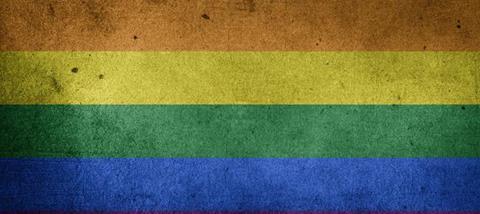
I love worship. Since the age of four, singing songs about Jesus has been my safest of sanctuaries. In recent years, many of the songs written by Bethel’s worship artists have given me the words, melodies and rhythms to sing along to as I have navigated life and sought to follow Jesus. This is what makes this past fortnight so difficult.
Two weeks ago, Bethel started a new campaign on their Instagram account. Black background. Six words. “Can a person leave homosexuality behind?”
The accompanying caption included the phrase ‘once-gay’ and stories of LGBTQ+ people turning irreversibly straight. Understandably, the LGBTQ+ community (which includes queer Christians who observe celibacy and others who embrace same-sex marriage) wanted to point out that this was dangerously similar to the language of ‘ex-gay’ conversion therapy: a discredited movement disavowed by its founders and increasingly disallowed around the world.
Bethel initially disabled all comments on their post. They then re-enabled them but deleted any comments that disagreed with their position. Four days later, Bethel posted that “God doesn’t force people to change…we stand against any and all forms of shame, manipulation, force, humiliation, or physical harm in so-called “ministry” or therapy.” But they contradicted their clarification when they then finished by promoting their once-gay movement.
Psychologists talk about triggers: when sight, sound or smell reminds someone of previous trauma and results in an intense emotional or physical reaction. In the aftermath of Bethel’s posts I received many messages from queer siblings who follow Jesus. Distraught. Distressed. Disappointed. Many were scared to go to Church services that weekend.
David Bennett, a gay Christian who has chosen celibacy, and author of A War of Loves, commented that “If we say we are cured or healed from simply having same-sex attraction without testimonies where this isn’t the case but Jesus is followed obediently, we construct a paradigm that risks putting SSA/gay people into a situation that requires hiding a part of reality to be fully accepted in the Church. This risks leading to a hidden culture of shame.”
Whatever our tribe, tradition or theology, Christians need to have this conversation in a better way. As Premier Christianity’s June issue explored, the current conversation (which ranges from deliberate silence to retreating to silos) is hurting too many people. I am not asking anyone to change their personal theology. I am just asking that we remember who the theology was given for.
I had hoped Bethel’s clarifying post was the start of a better conversation. But later that day, I was in a worship service led by a well known Bethel artist. Halfway through his set, he stopped to talk about the unconditional love of God. Then he encouraged the congregation to pray against mental illness including homosexuality and gender dysphoria. Some of the crowd screamed in jubilation.
Let me try to convey what this does to someone like me.
First I freeze with fear. Then my mind races frantically. I remember waking up every morning between the ages of 7 and 27 distraught that God had not answered my daily prayer to make me straight. I relive the nausea that comes from delighting in Jesus and longing for his kingdom but terrified that I won’t get to inherit it until I am made ‘normal’. I remember the feelings of fear, shame and rejection when a trainee youth pastor laughed about how disgusting it would be for men to be attracted to men, when someone told me there must be something wrong with me given that I was not yet married to a woman and when a pastor told me it would be kinder not to tell my family rather than disappoint them. It makes me never want to be in a worship environment again. Then I have to remember how to breathe, pray and seek the Spirit’s help not to spiral into despair.
I remember the feelings of fear, shame and rejection when a trainee youth pastor laughed about how disgusting it would be for men to be attracted to men
No one - straight or queer - was created to withstand trauma in silence. It breaks my heart that cases of self-harm, eating disorders and suicidal ideation are higher among young queer Christians than their peers who do not have a faith.
As I stood there in that moment, I thought of the many queer people who statistically would have been in the congregation. I became angry. Then upset. Would the worship leader - would Bethel as a Church and worship movement - would the global Church - be so careless if they knew the fruit of their actions?
God was very kind in that moment. The friend I was with gave me a hug, reminding me that I am welcome. Then the band started to play another familiar Bethel song. The lyrics meant I could forgive my grievance, find something to be grateful to Bethel for, and fix my gaze back on Jesus. As I did, the lyrics stood out as a testimony to every believer - however outcast - that God is faithful:
I do not know how we have this conversation better. I do not know how we navigate the dirt and grace of disagreeing while pursuing unity. But I do know that grace is a collision on the way back home.
God is our father who runs after everyone. Jesus is the better older brother: he celebrates the return of the father’s children to the family of God and shows them to the room prepared by the father.
So, I humbly ask that we try. There are more that need to know, love and sing of the goodness of the one who runs after them.
Fraser Atkins is a queer Christian who works in the charity sector and lives in London, UK
Premier Christianity is committed to publishing a variety of opinion pieces from across the UK Church. The views expressed on our blog do not necessarily represent those of the publisher.




























